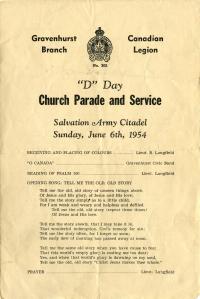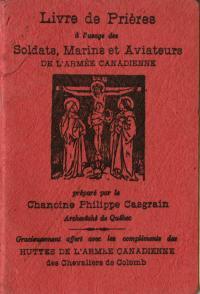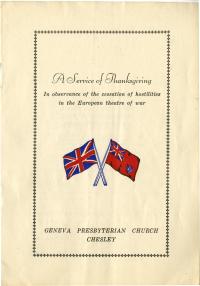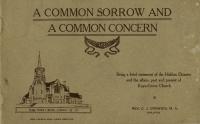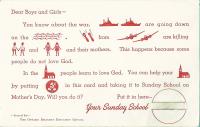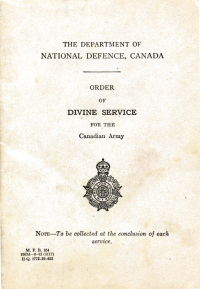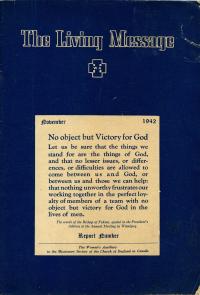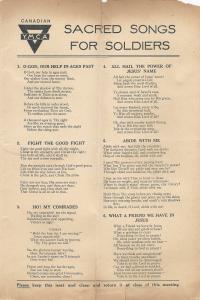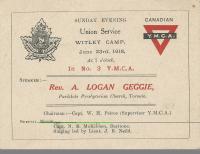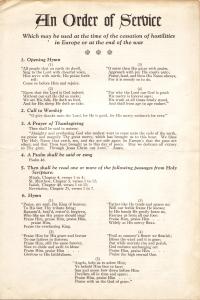Worshipping
Introductory Essay
D-Day ... ten years after
On the tenth anniversary of the invasion of Normandy, veterans in Gravenhurst, Ontario, organized a church service to mark the occasion.
Prayers for soldiers, sailors and airmen
Endorsed by the Archbishop of Quebec, this prayer book was published by the Knights of Columbus within a few months of the beginning of the Second World War.
Giving thanks for peace
Across the Allied world in May 1945, communities like Chesley, Ontario, gathered to give thanks for the defeat of Nazi Germany.
Rebuilding after the Halifax Explosion
The Grove Presbyterian Church and the Kaye Street Methodist Church were destroyed in the Halifax Explosion of December 1917; after the war, parishioners united to build one church to serve both congregations.
Sunday School and Mother's Day
This donation card, directed at Ontario children, conflated Mother's Day, religion, and the need to defeat Nazi Germany
Order of Divine Service for the Canadian Army
The order of service used by the Canadian Army on all occasions except regular church service.
Women of the Anglican Missionary Society
Like virtually every organization in Canada, the Woman's Auxiliary added war work to its charitable activities during the Second World War, and reported on its initiatives in this monthly magazine.
Hymns for soldiers
Soldiers were fond of altering the lyrics to hymns for comic effect - so, "What a Friend We Have in Jesus" became "When This Lousy War is Over."
The YMCA at Witley
This ecumenical service, held at a large CEF training camp in the south of England, featured Rev. A. Logan Geggie of Parkdale Presbyterian Church in Toronto.
Awaiting the end of the war
Even before the Second World War ended, the Canadian Council of Churches had prepared an order of service that could be used to celebrate the occasion, whenever it came.

